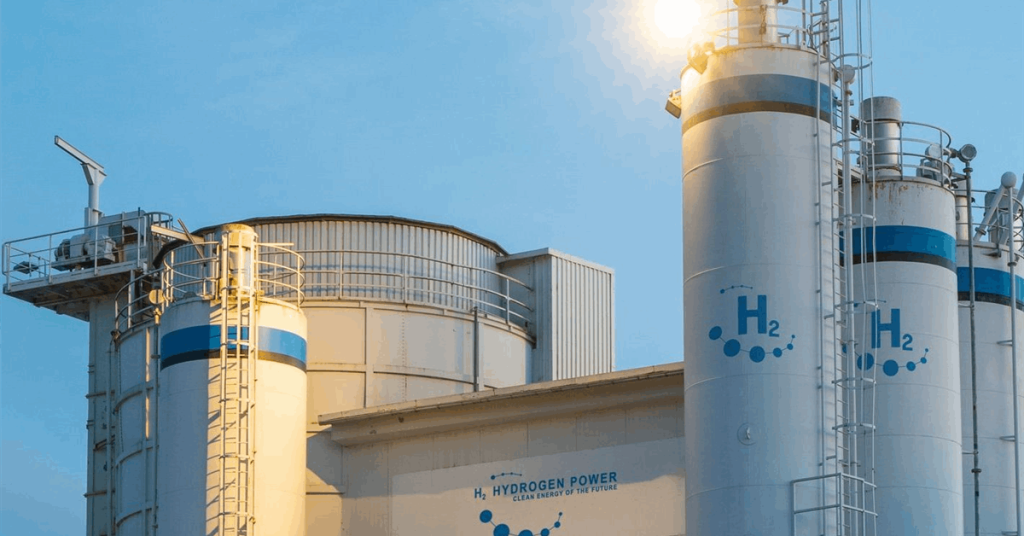Uniper SE has roped in thyssenkrupp Uhde GmbH as a partner and secured state funding for a large-scale ammonia cracker development project in the German state of North Rhine-Westphalia.
The partnership will build a demonstration plant with a capacity of 28 metric tons a day of ammonia at Uniper’s Gelsenkirchen-Scholven power plant site. In the cracker, ammonia will be broken down into its components, hydrogen and nitrogen, at high temperatures. A purification process will then produce pure hydrogen.
“The plant will be one of the first of its kind in the world and will serve as the basis for the planned hydrogen import terminal in Wilhelmshaven, northwestern Germany, where the technology is to be applied on a large industrial scale in a second step”, a joint statement said, noting ammonia cracking technology is regarded as the missing element in realizing a global hydrogen infrastructure.
“The aim of the partnership is to convert imported ammonia into hydrogen on an industrial scale and make it available for a wide range of industries such as energy, steel, and chemicals”.
Power and gas utility Uniper and chemical engineering company thyssenkrupp Uhde, both German multinationals, obtained all official approvals for the construction and operation of the demo cracker. Construction has started, with commissioning expected next year, according to the companies.
“The project is supported by funding from the state of North Rhine-Westphalia to realize innovative components of the demonstration plant at the Scholven site … Both companies are also contributing significant funds of their own”, the companies said.
Uniper chief operating officer Holger Kreetz said, “Uniper is actively committed to establishing hydrogen as an important component of the future energy mix that combines security and sustainability”.
“Our aim is to strengthen the resilience of the economy”, Kreetz added. “In order to meet Germany’s future hydrogen needs, we are dependent on imports from abroad. The partnership between Uniper and thyssenkrupp Uhde is therefore an important milestone for the hydrogen ramp-up and the decarbonization of industry.
“With the ammonia cracker in Scholven, we’re laying the groundwork to trade hydrogen internationally and making it available across industries”.
Nadja Håkansson, thyssenkrupp Uhde chief executive, commented, “Uniper’s position as a leader in the energy markets and experienced asset operator, combined with our proven track record as a global leader in ammonia technology and large-scale plant delivery, forms a strong foundation for success. This joint capability ensures that the cracker plant is optimized not only for performance and efficiency but also for safety, long-term reliability, and total lifecycle cost”.
“This integrated approach ensures a high level of confidence across the industry that the plant will consistently deliver top-tier operational performance throughout its entire lifecycle”, Håkansson added.
To contact the author, email jov.onsat@rigzone.com
What do you think? We’d love to hear from you, join the conversation on the
Rigzone Energy Network.
The Rigzone Energy Network is a new social experience created for you and all energy professionals to Speak Up about our industry, share knowledge, connect with peers and industry insiders and engage in a professional community that will empower your career in energy.
element
var scriptTag = document.createElement(‘script’);
scriptTag.src = url;
scriptTag.async = true;
scriptTag.onload = implementationCode;
scriptTag.onreadystatechange = implementationCode;
location.appendChild(scriptTag);
};
var div = document.getElementById(‘rigzonelogo’);
div.innerHTML += ” +
‘‘ +
”;
var initJobSearch = function () {
//console.log(“call back”);
}
var addMetaPixel = function () {
if (-1 > -1 || -1 > -1) {
/*Meta Pixel Code*/
!function(f,b,e,v,n,t,s)
{if(f.fbq)return;n=f.fbq=function(){n.callMethod?
n.callMethod.apply(n,arguments):n.queue.push(arguments)};
if(!f._fbq)f._fbq=n;n.push=n;n.loaded=!0;n.version=’2.0′;
n.queue=[];t=b.createElement(e);t.async=!0;
t.src=v;s=b.getElementsByTagName(e)[0];
s.parentNode.insertBefore(t,s)}(window, document,’script’,
‘https://connect.facebook.net/en_US/fbevents.js’);
fbq(‘init’, ‘1517407191885185’);
fbq(‘track’, ‘PageView’);
/*End Meta Pixel Code*/
} else if (0 > -1 && 88 > -1)
{
/*Meta Pixel Code*/
!function(f,b,e,v,n,t,s)
{if(f.fbq)return;n=f.fbq=function(){n.callMethod?
n.callMethod.apply(n,arguments):n.queue.push(arguments)};
if(!f._fbq)f._fbq=n;n.push=n;n.loaded=!0;n.version=’2.0′;
n.queue=[];t=b.createElement(e);t.async=!0;
t.src=v;s=b.getElementsByTagName(e)[0];
s.parentNode.insertBefore(t,s)}(window, document,’script’,
‘https://connect.facebook.net/en_US/fbevents.js’);
fbq(‘init’, ‘1517407191885185’);
fbq(‘track’, ‘PageView’);
/*End Meta Pixel Code*/
}
}
// function gtmFunctionForLayout()
// {
//loadJS(“https://www.googletagmanager.com/gtag/js?id=G-K6ZDLWV6VX”, initJobSearch, document.body);
//}
// window.onload = (e => {
// setTimeout(
// function () {
// document.addEventListener(“DOMContentLoaded”, function () {
// // Select all anchor elements with class ‘ui-tabs-anchor’
// const anchors = document.querySelectorAll(‘a .ui-tabs-anchor’);
// // Loop through each anchor and remove the role attribute if it is set to “presentation”
// anchors.forEach(anchor => {
// if (anchor.getAttribute(‘role’) === ‘presentation’) {
// anchor.removeAttribute(‘role’);
// }
// });
// });
// }
// , 200);
//});

